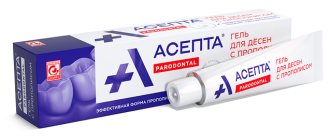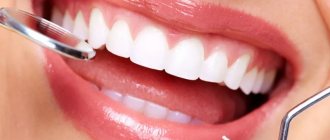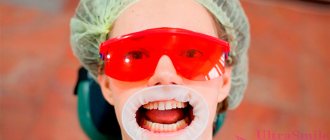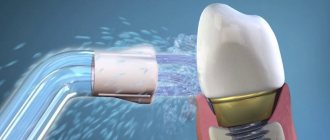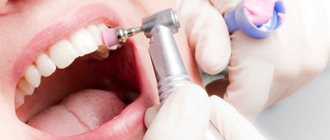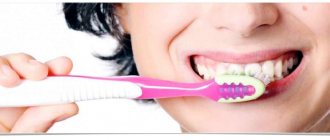What can you eat after cleansing?
After the procedure, dentists impose a number of restrictions on the patient’s eating behavior. In the first 2-3 days, foods that irritate tooth enamel are excluded from the diet: sour, hot, salty, sweet. The sensitivity of teeth after ultrasonic cleaning of stone is increased: bright tastes and temperature changes provoke pain.
Products containing dyes are prohibited. The list of what not to eat after brushing your teeth for tartar includes:
- black tea and coffee;
- colored carbonated drinks;
- chocolate;
- soy and balsamic vinegar;
- mustard and curry spices;
- red wine and grapes;
- berries (blueberries, blueberries, currants);
- red and orange vegetables;
- sweets containing dyes.
A number of products are recommended for consumption. They strengthen tooth enamel and prevent the formation of plaque and caries. Dentists advise eating dairy products in any form. Fruits and vegetables, particularly apples, reduce the amount of tartar. It is useful to drink diluted apple juice, which dissolves plaque.
Enamel sensitivity
May increase in the first days after professional hygiene. At first, to avoid pain, it is better not to consume sour or very sweet foods and drinks. It is not recommended to consume cold and hot at the same time or too cold, hot drinks and foods. This is dangerous not only by increasing the sensitivity of the enamel, but also by weakening it and the appearance of microcracks on its surface.
To prevent enamel sensitivity from increasing after professional cleaning, it is better to complete the procedure with remineralization or fluoridation. This will strengthen the enamel and remove discomfort.
If the enamel is weakened, after cleaning, the doctor may additionally prescribe special products, toothpastes, to strengthen it.
If severe pain persists after the procedure or the pain does not decrease within several days, you should consult a dentist.
What are the dangers of tartar?
In cases where tartar has already formed, treatment should be carried out immediately. Otherwise, it moves under the gums and leads to severe disorders of tissue metabolism in soft tissues.
As a result, acute or chronic gingivitis develops, the ligamentous apparatus of the tooth becomes inflamed and, as the most severe complication, periodontal disease develops - atrophy of the tissues that provide support to the tooth. As a result, a person who has developed subgingival tartar in the future faces the need to remove teeth that have lost stability and are no longer able to perform their functions.
Additional care products
Dental floss, floss. Used to clean interdental spaces. After professional cleaning, use floss carefully so as not to injure the edges of the gums. Movements are directed from the gums to the cutting edge or to the chewing surface of the crown. Floss is used several times a day, as needed (after meals, after morning and evening brushing of teeth).
Irrigator. Using an irrigator helps to maintain the results of professional hygiene for a long time. The device cleans enamel with a thin stream of water under pressure. This type of cleaning removes soft plaque well and prevents the formation of tartar. The irrigator is used once a week or less. It is better if the frequency of such cleanings is determined by a doctor, taking into account the condition of the enamel.
Dangers of tartar on teeth
If the layers are not treated in a timely manner, you may encounter a whole range of complications. Some of them can even lead to the loss of your own teeth if the symptoms are not dealt with in time.
The deposit on the teeth can be colored in different shades by natural dyes such as coffee, wine, tea, cigarette smoke, etc. But discoloration is not the whole problem; the appearance of bad breath also creates many problems due to the development of microflora.
It doesn’t matter how dense the deposit on the teeth is, but microorganisms and bacteria develop in it, which cause the development of inflammation, and as a result, damage to the gums. The sharp edges of the stone injure the gums and cause bleeding of the gums, loosening of teeth and their loss. Today it has been proven that plaque is a very strong factor contributing to the appearance of gingivitis and various other inflammatory diseases. Therefore, removing tartar from teeth can become one of the main preventive measures against various types of gum pathologies.
Caries
In the absence of treatment of the deposits, a person often faces caries. Its cause is streptococci, which soften tooth enamel. Caries is a constant source of infection in the body. It also destroys teeth.
Periodontal disease
With periodontal disease, the necks of the teeth are gradually exposed due to the influence of pathogenic microflora. This disease is fraught with early tooth loss.
Gingivitis
Gingivitis is a disease accompanied by inflammatory processes in the gum tissue. Pathology quickly leads to loosening and loss of teeth.
Periodontitis
A disease accompanied by inflammation of the tissue surrounding the tooth is called periodontitis. If treatment is not carried out on time, there will be complaints of bleeding gums and bad breath. In especially advanced cases, teeth will fall out completely.
Contraindications to professional teeth cleaning
There are many positive effects from the procedure, but there are also negative aspects and associated contraindications for use. These contraindications do not apply to every patient, but only in exceptional cases when the patient has individual distinctive characteristics of the gums or teeth.
- Sensitivity of the gums and enamel - the procedure can be performed, but it will be painful, which is negatively perceived by patients.
- Periodontitis and other oral pathologies are present.
- Age less than 18 years.
- Bacterial and viral diseases.
- Allergy to medications and products used in the process.
- Increased heart rate, arrhythmia.
- Dangerous infections (hepatitis, tuberculosis, AIDS or HIV).
- Multiple foci of caries.
The dentist’s duty is to ask the patient about all of the above. Even if the disease or condition is not directly related to dental matters, it influences the doctor's decision.
A dentist who values his reputation will not agree to perform a procedure even for money if it harms the patient.
How to care for braces?
In order to properly brush your teeth with braces, you need to follow these tips:
- For cleaning you will need 2 brushes, one of which should be tuft-shaped and the other should have a V-shape. The first is intended to clean the front teeth, the second – the back teeth.
- It is necessary to use fluoride-containing paste.
- Brushing your teeth must be done after every meal.
For clarity, you can find on the Internet and watch a video on how to properly brush your teeth if you have braces in your mouth.
Causes of complications from Air Flow and ultrasound
Operator inexperience
The first situation is the inexperience of the operator: for the operator, removing tartar and plaque is not the main activity. This often occurs in clinics where there are no hygienists specially designated for preventive measures, and everyone who is not too lazy does teeth cleaning! A general dentist can clean your teeth, an orthodontist, and a surgeon can. There is nothing wrong with this, but you need to understand that it is unlikely that an implant surgeon, whose main specialization is placing implants, will clean the patient’s teeth well and correctly and allocate the required amount of time for this.
The second situation is the operator’s inexperience: many clinics believe that dental hygiene (removing plaque and tartar) is a fairly simple medical procedure. Therefore, dental assistants or dental students in general are forced to do hygiene. This practice is widespread! Neither dental assistants nor students have the experience or qualifications to perform this treatment to a high standard.
The third situation is the inexperience of the operator: the dental hygienist does not have the necessary experience, and the work experience is low. Experience in this specialty comes after at least two years of practice.
Lack of time
Many clinics have regulated appointment times for patients. Especially in government and departmental clinics, the appointment time for one patient is limited and standardized. Network clinics, where business is more important than a human approach, and insurance companies that like to cooperate with networkers also often limit the time they can see a patient. But the situations in everyone's mouth are different. Some people have almost no stones, others have a lot. One has deep pockets, the other does not. One person has a good mouth opening and can sit for an hour and a half with his mouth open, for another it is difficult.
At Dial-Dent we do not limit the time allocated for each patient. During the consultation and examination, an experienced operator will see all the nuances and allocate as much time as necessary to carry out high-quality removal of tartar and plaque for a specific person.
Bad equipment, poorly calibrated equipment
Good equipment is quite expensive. There are additional costs for training personnel to use and maintain complex medical equipment. Many ultrasound machines do not have power adjustments or the adjustments are not flexible. Many ultrasonic devices create vibration trajectories that are dangerous to teeth. Old equipment. Inexpensive equipment. His service is bad. Frequent changes of operators (staff turnover) create conditions for potential problems when brushing teeth.
Device power is too high
This problem is due to lack of time and inexperience of the operator. In clinics where appointment time per patient is limited, the hygienist needs to increase the power of the ultrasound in order to clean teeth faster and meet the deadline.
If the operator is inexperienced, even with sufficient time, it is possible to make mistakes in the ultrasonic power settings. High power is preferable for an inexperienced operator: stones fly off quickly! But with high power, the risk of injuring teeth increases.
Worn or non-original attachment for an ultrasound machine
In ultrasonic devices, the consumable material is the nozzle. The nozzle is the tip that actually moves along the teeth, and to which the ultrasonic vibrations generated by the device are transmitted. The attachments are different. The better the clinic, the more attachments the hygienist uses. The attachments wear out when used. It is important that the operator monitors the wear of the nozzles and replaces them in a timely manner. In good clinics, nozzle wear is monitored using a special template on a regular basis. When working with attachments whose wear exceeds the established regulations, the tooth overheats and vibrations become uncontrollable. The risk of injury to tooth enamel or tooth nerve increases! Also often in practice there are situations when the device is expensive and good, but they try to save money on attachments and install analogues from China. This is unacceptable for Dial-Dent! We use only original ultrasonic attachments EMC Switzerland.
Saving on materials
An attempt to reduce the cost of the Air flow procedure through the use of non-original, and therefore low-quality, cleaning powders. And, as a result, damage to tooth enamel. EMS is the only company that has its own powder production in two chemical laboratories in Germany and Switzerland. We at Dial-Dent use only original materials.
The above disadvantages may be encountered by patients visiting a hygienist in other clinics using insurance or coupons. The main disadvantage is that other clinics are not responsible for the dental structures or fillings installed in you (we are talking about patients who undergo their main treatment at Dial-Dent). The quality of cleaning may vary, satisfactory or unsatisfactory. In a sense, it's a lottery, whether you get lucky or not. Why risk your health? Get your cleaning done by professionals with ten years of experience in a clinic where they care about the quality of equipment, materials and installed structures! Come for preventive care at Dial-Dent!
Make an appointment for a consultation by phone +7-499-110-18-01 or through the form on the website. You can ask questions about the prevention of dental diseases to the chief doctor of the clinic, Sergei Vladimirovich Tsukor, at
Ultrasonic teeth cleaning
This technique requires the presence of special equipment that produces ultrasonic waves. Under the influence of ultrasound, the stone crumbles and peels off from the enamel. The wave is directed and focused using a special hook (scaler). There is a negative side to the technique - ultrasound causes vibrations that heat not only the stone, but also the enamel.
To reduce this effect, preserve the enamel and avoid discomfort, water pressure is simultaneously transmitted. Thanks to the action of water, the tooth does not heat up, and microparticles are removed.
Modern ultrasonic devices even remove plaque concentrated on the gums, maintaining their health. Ultrasound cleaning in a normal oral cavity is painless and safe for an absolute number of patients.
For some patients with hypersensitivity and chronic dental diseases, ultrasound is contraindicated - it can cause pain and relapse of the disease.
Teeth brushing “air flow”
This type of procedure requires a dental device that performs cleaning with a highly targeted, powerful air jet. Air under enormous pressure quickly blows away plaque, traces of nicotine and food.
Some patients experience teeth whitening by several shades after this medical procedure, but such a side effect does not always happen.
After removing the plaque, if a person returns to the old lifestyle, the color of the teeth returns to their original state, they again acquire their natural shade. For the procedure to be effective, an abrasive and water are used. The abrasive used is baking soda, which does not harm the body and enamel. The advantage of this option is that the results last for a long period.
A variation of the “air flow” technique is the “perio-flow” procedure, which focuses on crushing stone under the gums. For this procedure, instead of soda, another abrasive based on a medical substance is used. Contraindications to the use of “perio-flow” are gum diseases, because it provokes an inflammatory process.

